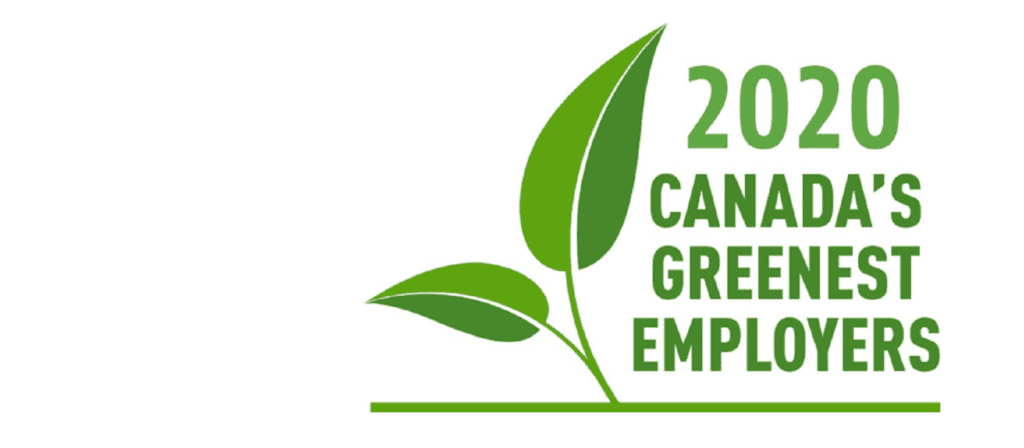In 2020, ICMIF member Desjardins (Canada) continued to make progress on implementing its commitments and concrete measures to integrate environmental, social and governance (ESG) factors into its business model to combat climate change.
Integrated ESG factors by:
- Being the first financial institution in North America to join the Powering Past Coal Alliance, a coalition of organizations supported by the United Nations that is working to advance the transition from unabated coal power energy to clean energy. Desjardins is withdrawing from the coal energy sector and will support the remaining companies in its portfolio that have a firm, short-term plan to transition to renewable energy.
- Being one of the first organizations in North America to sign the Tobacco-Free Finance Pledge, which was developed in collaboration with the United Nations Environment Programme Finance Initiative to support global anti-tobacco efforts.
- Committing to fighting against discrimination and promoting diversity by signing the Responsible Investment Association’s Canadian Investor Statement on Diversity & Inclusion.
- Supporting the Black Lives Matter movement by signing the BlackNorth Initiative and committing to achieve concrete targets in its recruiting, representativeness and sponsorship policies.
- Excluding fossil fuels from Desjardins SocieTerra Funds and Portfolios and offering them all across Canada.
- Signing the United Nations Women’s Empowerment Principles and launching the Desjardins SocieTerra Diversity Fund, which invests in businesses with strong female representation on their boards of directors and management committees.
- Joining the Partnership for Carbon Accounting Financials to measure the greenhouse gas (GHG) emissions generated by Desjardins’s financing and investment activities using a recognized scientific method.
Remained carbon neutral
Since 2017, Desjardins’s operations have remained carbon neutral (buildings, business travel, paper consumption) by purchasing verified carbon credits to offset GHG emissions. In 2020, Desjardins supported the following carbon capture and emission reduction initiatives to offset all its GHG emissions for 2019:
- Lauzon Recycled Wood Energy Inc. (Outaouais and Mauricie): Recovering, processing and recycling wood residue that would otherwise end up in waste piles or landfills.
- Niagara Escarpment Forest Carbon Project (Ontario): Managing, promoting and maintaining the function and diversity of ecosystems along the Niagara escarpment.
- Les Serres Coopératives de Guyenne (Quebec) and Productions Horticoles Demers (Quebec): Reducing carbon emissions by setting up heating systems that use 100% renewable energy, such as forest biomass residue or biogas from landfills.
- Terreau Biogaz inc. (Quebec): Recovering and processing biogas from landfill sites and feeding it into Hydro-Québec’s green energy grid.
- Madre de Dios Amazon REDD Project (Peru): Preventing deforestation and preserving the natural habitats of endangered species and tribal communities in a conservation area near Machu Picchu.
Once again this year, Desjardins provided financial support equivalent to 1% of its carbon footprint to Coop FA’s Carbone Scol’ERE, a school-based program that teaches young people and their families about the importance of eco-citizenship. Since 2014, Desjardins has donated nearly CAD 650,000 to this program to get it off the ground.
Invested in renewable energy infrastructure projects
Desjardins continues to support renewables by investing directly in infrastructure. A CAD 100 million investment in four wind farms and a solar farm in the US was recently announced.
As at 30 September 2020, Desjardins had invested CAD 1.21 billion in the renewable energy infrastructure sector. That’s approximately 44% of its infrastructure portfolio.
Reduced the carbon footprint of its own investments
In 2020, Desjardins reached its carbon footprint reduction target for its own investments in publicly traded securities. As at 30 September, its carbon footprint for these types of investments was 31% lower than that of the stock and bond market index average. The target was a 25% reduction by 31 December 2020.
Desjardins will continue to be an engaged shareholder to encourage companies to be aware of climate risk and to integrate ESG criteria into their activities.
Supported electric transportation
Desjardins continues to install electric charging stations at its caisses and credit unions across Quebec and eastern Ontario. To date, 268 charging stations have been installed, including 225 that are available to the general public.
Accelerated the transition to a circular economy
In September, Desjardins teamed up with the Centre d’études et de recherche intersectorielles en économie circulaire at École de technologie supérieure. Desjardins will be donating CAD 2 million over five years to set up labs to accelerate the transition to a circular economy.
Implemented COVID-19 measures to boost socio-economic recovery
Desjardins is one of three financial institutions in North America recognized by the United Nations as a responsible institution during the COVID-19 pandemic. In addition to the numerous relief measures offered to personal and business members and clients, Desjardins announced its support for projects that boost socio-economic recovery and promote innovation and entrepreneurship. For example:
- The GoodSpark Fund: CAD 250 million invested until 2024 to support initiatives across all regions.
- The Momentum Fund to support energy efficiency projects led by SMEs (sugar shack, outfitter, urban farm, greenhouse, agri-food business, etc.) that want to reduce their carbon footprint.
- Partnership with Google and Bonjour Startup Montréal to launch an innovation competition.





